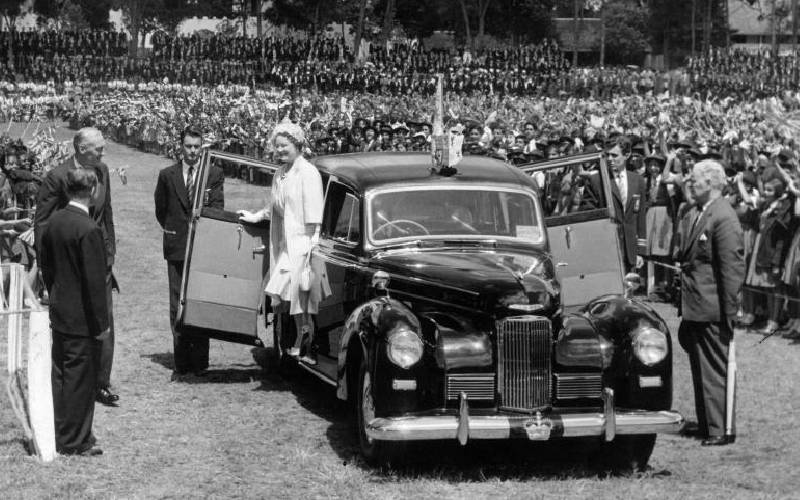×
The Standard e-Paper
Smart Minds Choose Us

Queen Elizabeth at Mitchell Park (Nairobi show) during her visit to Kenya, 1959. [File, Standard]
Seventy years ago this week, Princess Elizabeth and Prince Philip were in colonial Kenya, watching wild animals at the Tree Tops Hotel in Nyeri. Her father, King George VI, died and she came down the hotel as queen of England and empress of an expansive but declining British Empire. The reaction to the king’s death varied with race.